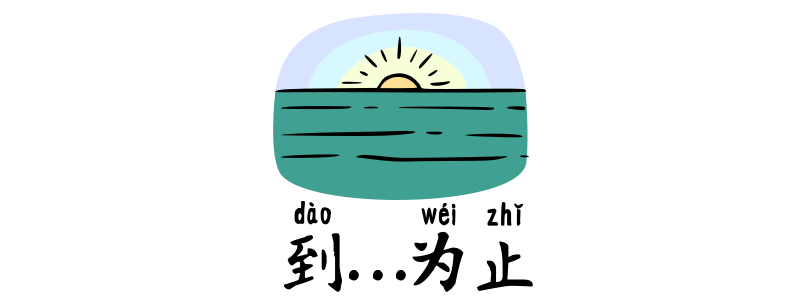Grammar Point:In Chinese, 由 yóu is often used to indicate “by” in the sense of agency, responsibility, or cause. It is commonly seen in formal writing or official contexts rather than casual speech. Structure 由 yóu + Starting Point/Route/Method + V 由 yóu is a more formal alternative to 從 cóng when indicating route, means, or direction. It’s commonly used in instructions, signs, and formal descriptions to…
Category: HSK 5
“Unavoidable” in Chinese 2 – 难免 nánmiǎn
Grammar Point:The Chinese word 難难免 nánmiǎn means “unavoidable” or “hard to avoid.” It is used when something is likely to happen due to natural circumstances, even if people try to prevent it. It often carries a neutral or slightly apologetic tone. Structure 難难免 nánmiǎn + V or Adj 人rén與yǔ人rén相處xiāngchǔ, 難免nánmiǎn會huì有yǒu誤會wùhuì人rén与yǔ人rén相处xiāngchǔ, 难免nánmiǎn会huì有yǒu误会wùhuìIn human relationships, misunderstandings are inevitable. 在zài大dà城市chéngshì生活shēnghuó, 難免nánmiǎn有yǒu壓力yālì在zài大dà城市chéngshì生活shēnghuó,…
“Unavoidably” in Chinese 1 – 不免 bùmiǎn
Grammar Point:The Chinese word 不免 bùmiǎn means “inevitably” or “unavoidably.” It is used to indicate that something is difficult to avoid or is bound to happen. Structure 不免 bùmiǎn + V or Verb Phrase It expresses an expected or natural consequence, often with a slightly negative tone. 這麼zhème冷lěng的de天氣tiānqì, 不免bùmiǎn容易róngyì感冒gǎnmào这么zhème冷lěng的de天气tiānqì, 不免bùmiǎn容易róngyì感冒gǎnmàoIn such cold weather, catching a cold is inevitable. 他tā剛gāng到dào新xīn公司gōngsī, 不免bùmiǎn會huì有些yǒuxiē緊張jǐnzhāng他tā刚gāng到dào新xīn公司gōngsī, 不免bùmiǎn会huì有些yǒuxiē紧张jǐnzhāngSince he just joined…
“So that” in Chinese – 以便 yǐbiàn
Grammar Point:Chinese word 以便 yǐbiàn is a formal conjunction used to indicate purpose or intended convenience. It means “in order to”, “so that”, or “for the purpose of” and is often used in written or formal contexts. Structure Action + 以便 yǐbiàn + Result 以便 yǐbiàn is a formal way to express “in order to,” emphasizing the facilitation of a purpose. It…
“In order to” in Chinese 2 – wèideshì and wèi… ér
Grammar Point:為为的是 wèideshì and 為为 wèi…而 ér… both mean “in order to” but differ in usage. 為为的是 wèideshì directly explains purpose and is common in speech. 為为 wèi…而 ér… is more formal, linking cause and effect. Structure Statement + 為为的是 wèideshì + Purpose Used in both spoken and written Chinese, 為的是 wèideshì directly explains the purpose of an action and often appears at…
“Thus” in Chinese 2 – 因而 yīn‘ér
Grammar Point:因而 yīn’ér is a conjunctive adverb that means “thus,” “therefore,” or “as a result.” It indicates a causal relationship between two clauses, where the second clause is the logical consequence of the first. Structure Clause A + 因而 yīn’ér + Result of A 因而 yīn’ér is a formal, written-language equivalent of “thus” or “as a result,” used to…
No matter how – 怎么 zěnme + 都 dōu/也 yě + neg
Grammar Point:The Chinese grammar structure “怎麼么 zěnme + 都 dōu / 也 yě + negation” is used to express “no matter how…” or “no matter what…”, emphasizing that a certain action or situation remains unchanged despite different efforts or conditions. Structure 怎麼么 zěnme + V + 都 dōu / 也 yě + Negation This pattern is often used to express…
“Moreover” in Chinese 3 – 再加上 zài jiāshang
Grammar Point:(再)加上 (zài) jiāshàang is used to introduce additional information, often emphasizing an extra reason, condition, or factor that strengthens a previous statement. It is similar to “moreover,” “besides,” “in addition,” or “on top of that” in English. Structure Statement A,(再)加上 + Statement B + Result It is used to introduce an additional reason or factor that reinforces a statement….
“Until” in Chinese – 到 dào… 为止 wéizhǐ
Grammar Point:到 dào… 為为止 wéizhǐ is a common structure for expressing ‘until’ in Chinese. Unlike English, where ‘until’ is a single word, Chinese uses 到 dào as a starting marker and 為为止 wéizhǐ as an endpoint, framing the time, condition, or event. Structure 到 dào + Time/Event/Action + (為为止 wéizhǐ) 為为止 wéizhǐ is optional, but…
Chinese Adverbs for Degree 1
Grammar Point:過於过于 guòyú, 稍微 shāowéēi, and 尤其 yóuqí are three adverbs that express degree in Chinese. They help convey different levels of intensity, slight changes, and emphasis in a sentence. Structure 過於过于 guòyú / 稍微 shāowéēi + V or Adj 稍微 shāowéēi can be used with a verb with or without 一下 yíxià or 一點点 yìdiǎn. However, adding 一下 yíxià or 一點点 yìdiǎn makes the…









